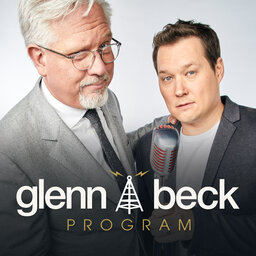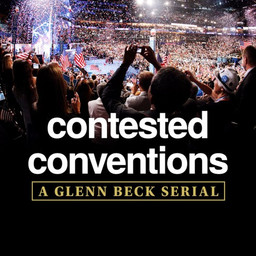Serial: Contested Conventions - 1924 (Democrats)
Contested Convention
Watch The Glenn Beck Radio Program, Monday through Friday, 9am - 12pm ET on BlazeTV. www.BlazeTV.com/GlennIf you think the 2016 GOP primary was nuts, then you probably haven’t heard about the Democratic convention in 1924. It has been called the wildest convention in history — and with good reason. It’s also been called the Klanbake. In 1924, the clan heavily influenced the Democratic party.
Former Democratic President Woodrow Wilson, a renowned racist himself, had reignited interest in the Klan in 1915 when he hosted and attended a special screening at the White House of Birth of a Nation, a movie where the Klan are the heroes and blacks are the villains. It’s based on a novel written by Wilson’s friend, Thomas Dixon which was based on a history book written by Wilson himself.
One of the front runners of the Democratic nomination was Wilson’s former cabinet member, William G. McAdoo, who was supported by the Klan. So prevalent was the KKK within the party that there were no black delegates at all at the convention. The other front runner at this hotly contested convention was New York governor Al Smith, who opposed the Klan.
It was a raucous convention, described by silent movie star Diana Serra Cary as filled with “rough people who were drunk and disorderly.”
As the convention wore on, it became so contentious that the violence broke out when the delegates from Missouri and Colorado attacked each other. Police had to restore order and quell the rioting multiple times.
With the balloting still not producing a nominee on the 4th of July, somewhere in the neighborhood of 20,000 Klansmen crossed the Hudson river into New Jersey to rally for McAdoo and celebrate a separate issue they had been voted on by the Democrats. They held their vote in an attempt to officially denounce the Klan. It failed. The final vote on the resolution was 542 in favor of denouncing the Klan, and 546 against it. The Ku Klux Klan would not be condemned by the Democratic party.
Interestingly, neither of the leading candidates were nominated. Instead, a compromise candidate emerged who lost the election to Calvin Coolidge in a crushing defeat.
So popular was President Calvin Coolidge, he never left the White House to campaign for his reelection or to fundraise in 1924 — not once — winning with 72% of the electoral votes. The American people had not forgotten the roaring economy or the fact that Harding and Coolidge’s policies pulled America out of a deep depression, a depression much larger than the one that would come just a few short years later.
In 3 playlist(s)
Glenn Beck
Watch The Glenn Beck Radio Program, Monday through Friday, 9am - 12pm ET on BlazeTV. www.BlazeTV.com…Social links
Recent clips

Best of the Program | Guests: Rep Thomas Massie, Rep. Chris Stewart & Ezra Levant | 2/5/20
1:00:45

Trump Redefined the SOTU | Guests: Reps. Thomas Massie & Chris Stewart | 2/5/20
2:08:26

The Glenn Beck Program | Hour 3 | 2/5/20
32:23
 Glenn Beck
Glenn Beck

